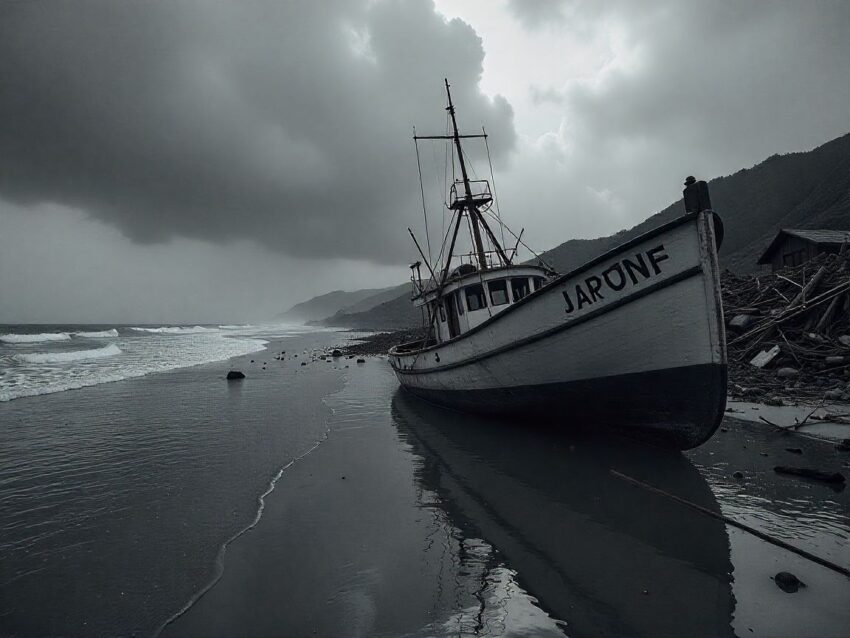Wednesday, July 30, 2025

A Japan tsunami warning issued early on Wednesday morning has led to widespread disruptions in local train services along Japan’s Pacific coastline. The warning followed a significant offshore earthquake near the Kamchatka Peninsula. In response, railway operators suspended operations on certain train lines, including the Tokaido line and the Joban line, which are essential routes for commuters and travelers across the region.
The Earthquake and the Tsunami Threat
The earthquake, which struck offshore, generated considerable concern due to the potential for a tsunami. In response, the Japan Meteorological Agency issued a Japan tsunami warning for several areas along the Japan Pacific coast. Given the magnitude of the earthquake, it was deemed necessary to halt operations on various local train services to ensure public safety.
The earthquake’s epicenter was located near the Kamchatka Peninsula, a region known for its frequent seismic activity. Though far from Japan, the event was powerful enough to trigger alarms along Japan’s eastern coastline. The warning prompted immediate measures by local authorities to protect the public from potential harm.
Key Train Lines Affected
The Tokaido line and Joban line are among the most important rail routes in Japan, connecting major cities along the Pacific coast. Both lines were affected by the Japan tsunami warning as authorities took precautionary steps to ensure the safety of passengers. The disruption occurred on several sections of these lines, with train services suspended for several hours.
- Tokaido Line: This major railway line, running from Tokyo to Osaka, is one of Japan’s busiest and most vital transit routes. Services along certain parts of the line were halted as part of the safety measures.
- Joban Line: Serving northeastern Japan, this line also saw disruptions, affecting both daily commuters and long-distance travelers. Suspended operations impacted a significant portion of the route, resulting in cancellations and delays.
Safety Measures in Place
As soon as the Japan tsunami warning was issued, authorities acted quickly to assess the potential threat. The Japan Meteorological Agency closely monitored the situation and continued to issue updates regarding the tsunami’s progress. Local governments were on high alert, encouraging residents near the coast to stay away from the water and evacuate if necessary.
For those relying on public transportation, the temporary suspension of local train services on the affected lines created significant inconvenience. However, this was seen as a necessary precaution to prevent potential harm. Authorities emphasized that while the suspension was disruptive, it was vital for minimizing the risks associated with the tsunami threat.
Impact on Travelers
The suspension of services on the Tokaido line and Joban line caused delays for many travelers, particularly commuters who depend on these routes for daily transportation. With both lines being crucial for connecting various regions along the Pacific coast, the disruption affected a large number of passengers.
To mitigate the impact, officials provided regular updates on the status of the train operations suspended in the affected areas. Passengers were urged to use alternative transportation options and to stay informed through official communication channels.
Ongoing Monitoring and Resumption of Services
As the situation unfolded, the Japan Meteorological Agency continued to monitor the possibility of further seismic activity and changes in the tsunami threat. Given the nature of natural disasters, the safety of the public was prioritized over convenience. Although the disruptions to local train services were inconvenient for many, the authorities maintained that the immediate action was necessary to ensure everyone’s safety.
Services along the Tokaido line and Joban line will only resume once it is safe to do so. Railway operators, in coordination with the government, are expected to resume operations after a thorough assessment of the situation. The goal is to get trains running again as soon as the risk is no longer a concern.
Conclusion
In conclusion, the Japan tsunami warning issued in response to the powerful offshore earthquake near the Kamchatka Peninsula has led to significant disruptions to local train services along the Pacific coast. The suspension of services on the Tokaido line and Joban line was a necessary step to safeguard the public. Although the disruptions caused delays for many travelers, it was a crucial measure taken in the interest of safety.
The authorities, in close collaboration with the Japan Meteorological Agency, are continuously monitoring the situation. Passengers are encouraged to remain updated on the status of train operations suspended and to seek alternative means of travel if needed. Once it is safe, train services will resume, and normal operations will be restored along the affected lines.